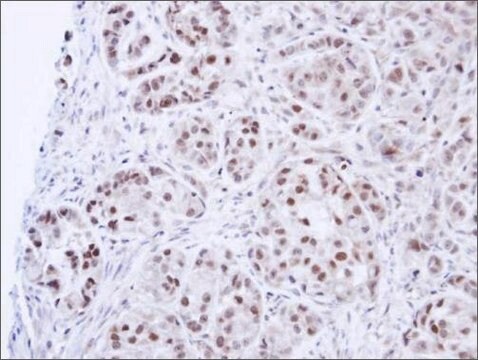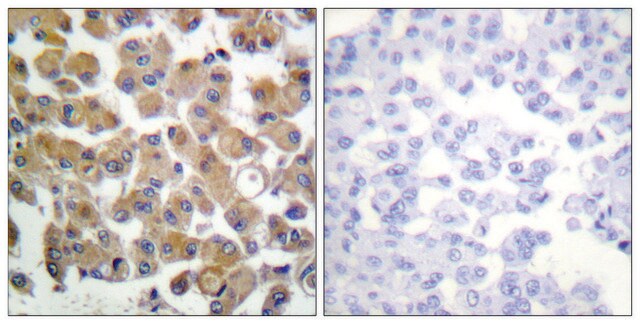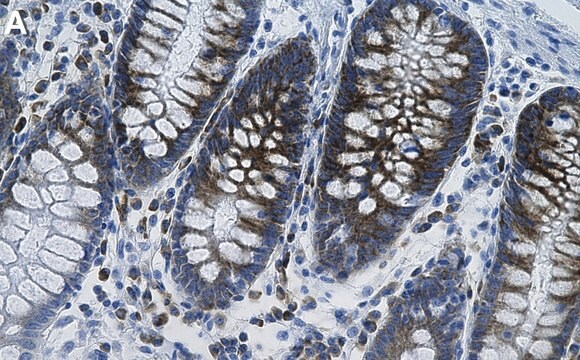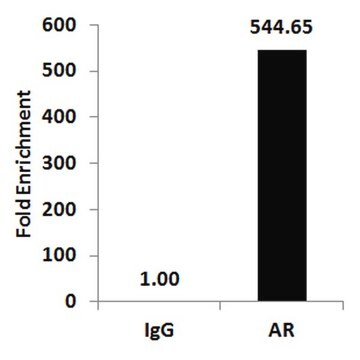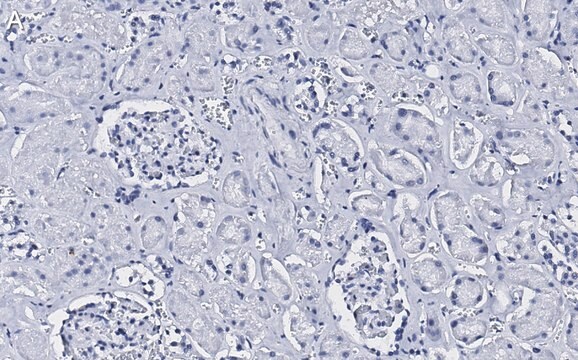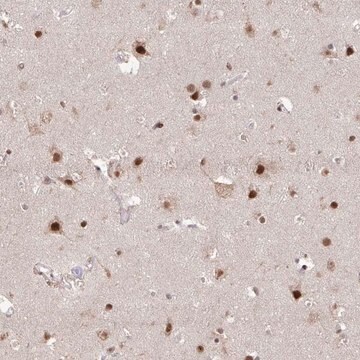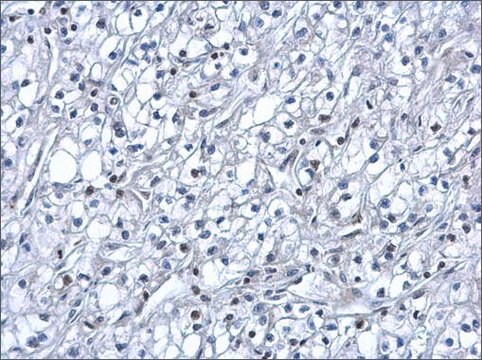H3284
Anti-Histone Deacetylase 1 (HDAC1) antibody produced in rabbit
IgG fraction of antiserum, buffered aqueous solution
Synonyme(s) :
Anti-GON-10, Anti-HD1, Anti-KDAC1, Anti-RPD3, Anti-RPD3L1
About This Item
Produits recommandés
Source biologique
rabbit
Niveau de qualité
Conjugué
unconjugated
Forme d'anticorps
IgG fraction of antiserum
Type de produit anticorps
primary antibodies
Clone
polyclonal
Forme
buffered aqueous solution
Poids mol.
antigen 65 kDa
Espèces réactives
human, mouse
Conditionnement
antibody small pack of 25 μL
Technique(s)
immunohistochemistry (formalin-fixed, paraffin-embedded sections): 1:500 using human lymph node sections
immunoprecipitation (IP): 5-10 μL using whole lysate of NIH3T3 cells
microarray: suitable
western blot: 1:20,000 using nuclear extract from HeLa human epithelioid carcinoma cells
Numéro d'accès UniProt
Conditions d'expédition
dry ice
Température de stockage
−20°C
Modification post-traductionnelle de la cible
unmodified
Informations sur le gène
human ... HDAC1(3065)
mouse ... Hdac1(433759)
Description générale
Spécificité
Immunogène
Application
Immunoblotting: a minimum working dilution of 1:20,000 is determined using a nuclear extract of HeLa human epithelioid carcinoma cell line.
Immunoblotting: a minimum working dilution of 1:2,000 is determined using a whole extract of PC-12 rat pheochromocytoma cell line.
Immunoprecipitation: a recommended working volume of 5-10 ml is determined using a whole lysate of NIH 3T3 cells.
Indirect immunoperoxidase staining: a minimum working dilution of 1:500 is determined using protease-digested, formalin-fixed, paraffin-embedded human lymph node sections.
Actions biochimiques/physiologiques
Forme physique
Clause de non-responsabilité
Vous ne trouvez pas le bon produit ?
Essayez notre Outil de sélection de produits.
Code de la classe de stockage
12 - Non Combustible Liquids
Classe de danger pour l'eau (WGK)
WGK 2
Point d'éclair (°F)
Not applicable
Point d'éclair (°C)
Not applicable
Équipement de protection individuelle
Eyeshields, Gloves, multi-purpose combination respirator cartridge (US)
Faites votre choix parmi les versions les plus récentes :
Certificats d'analyse (COA)
Vous ne trouvez pas la bonne version ?
Si vous avez besoin d'une version particulière, vous pouvez rechercher un certificat spécifique par le numéro de lot.
Déjà en possession de ce produit ?
Retrouvez la documentation relative aux produits que vous avez récemment achetés dans la Bibliothèque de documents.
Notre équipe de scientifiques dispose d'une expérience dans tous les secteurs de la recherche, notamment en sciences de la vie, science des matériaux, synthèse chimique, chromatographie, analyse et dans de nombreux autres domaines..
Contacter notre Service technique